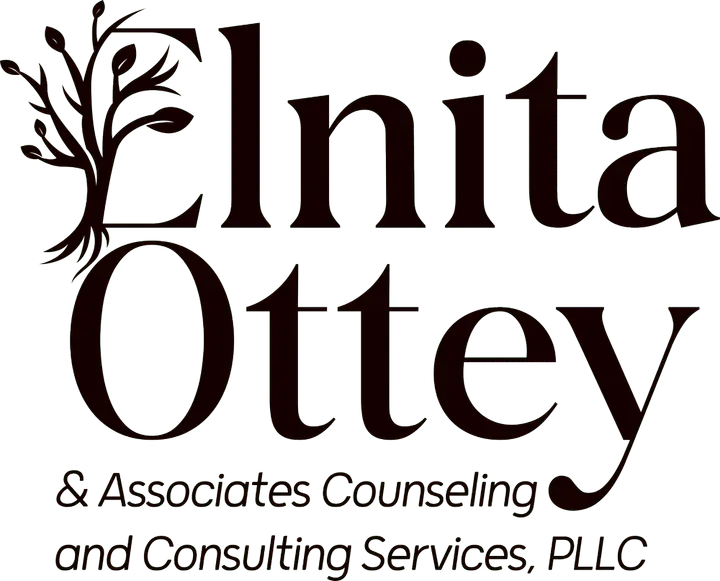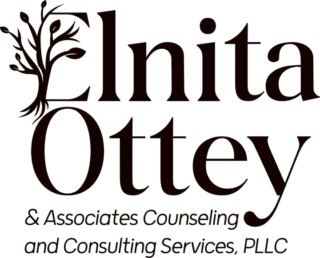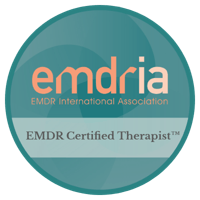When we think of childhood trauma, we often associate it with painful past experiences—neglect, abandonment, abuse, or chaotic family environments. But what many don’t realize is that the effects of childhood trauma don’t just stay in the past; they follow us into adulthood, shaping how we connect with others, build trust, and navigate intimacy.
If you’ve ever struggled with maintaining healthy relationships, experienced fear of abandonment, or felt emotionally disconnected from a partner, childhood trauma could be playing a role. In this post, we’ll explore how early trauma affects adult relationships, how attachment wounds develop, and how Eye Movement Desensitization and Reprocessing (EMDR) can help heal these deep-seated wounds.
The Link Between Childhood Trauma and Adult Relationships
Our earliest relationships—particularly with caregivers—form the blueprint for how we interact with others later in life. When children grow up in safe, nurturing environments, they develop secure attachments, learning that the world is predictable and relationships can be trusted.
However, when a child experiences neglect, abuse, or inconsistency in care, their brain adapts to survive. These adaptations, though protective in childhood, often create emotional and relational challenges in adulthood.
Some common relationship struggles rooted in childhood trauma include:
- Fear of abandonment – Constant anxiety that a partner will leave, leading to clinginess or emotional withdrawal.
- Difficulty trusting others – A persistent fear that people will hurt, betray, or disappoint.
- Emotional avoidance – Suppressing emotions or struggling to express feelings due to fear of vulnerability.
- People-pleasing – Overcompensating in relationships to avoid rejection or conflict.
- Explosive reactions – Overreacting to minor conflicts due to unresolved emotional pain.
- Struggles with intimacy – Difficulty forming deep emotional or physical connections with a partner.
These behaviors are not a choice but rather deeply ingrained survival mechanisms. The good news? Healing is possible, and EMDR therapy can help.
How Attachment Trauma Develops
Trauma impacts relationships because it affects attachment styles—the ways we connect and relate to others. The four main attachment styles include:
- Secure Attachment – Individuals trust others, communicate openly, and feel comfortable with intimacy.
- Anxious Attachment – Fear of abandonment, craving closeness but feeling insecure in relationships.
- Avoidant Attachment – Emotionally distant, struggles with expressing needs or trusting others.
- Disorganized Attachment – A mix of anxious and avoidant behaviors, often due to unresolved trauma.
If childhood trauma goes unprocessed, individuals often carry anxious, avoidant, or disorganized attachment patterns into adulthood, affecting friendships, romantic relationships, and even professional interactions.
Healing Attachment Wounds with EMDR
Eye Movement Desensitization and Reprocessing (EMDR) is a powerful therapy that helps process unresolved childhood trauma and shift harmful relationship patterns. EMDR targets painful memories and beliefs stored in the brain, allowing individuals to reprocess them in a healthier way.
Here’s how EMDR can help improve relationships:
- Reprocessing traumatic memories – EMDR helps desensitize painful childhood experiences that may be triggering current relationship issues.
- Reducing emotional reactivity – It allows individuals to respond to conflicts with more emotional balance instead of reacting from past wounds.
- Shifting negative core beliefs – Many people hold deep-seated beliefs like “I am not lovable” or “I don’t deserve love” due to childhood trauma. EMDR replaces these beliefs with more positive, empowering ones.
- Building healthier attachment patterns – EMDR helps individuals feel safer in relationships, improving trust and emotional intimacy.
- Easing anxiety and fear of abandonment – By targeting past emotional pain, EMDR reduces the fears and insecurities that lead to relationship struggles.
What to Expect in EMDR Therapy for Relationship Healing
If you’re struggling with relationship challenges tied to childhood trauma, working with an EMDRIA-certified therapist like Elnita Ottey can help you identify and heal the root causes.
During EMDR Therapy, You Will:
✅ Identify painful memories affecting your current relationships.
✅ Reprocess those memories using bilateral stimulation (eye movements, tapping, or auditory tones).
✅ Reduce the emotional intensity of past experiences.
✅ Develop healthier beliefs about yourself and relationships.
✅ Gain tools to create secure, fulfilling connections in the present.

Take the Next Step Toward Healing
Childhood trauma does not have to define your future. With EMDR, you can heal attachment wounds, break free from toxic relationship patterns, and create the deep, meaningful connections you deserve.
Elnita Ottey is an EMDRIA-certified EMDR therapist offering both in-person and virtual sessions.
In-person therapy is available in Monroe, NC, and the Charlotte Metro area.
Virtual therapy is available to clients in Oregon, Oklahoma, Colorado, South Carolina, Tennessee, and North Carolina.
Looking for an EMDR-certified therapist in your area? You can find an EMDRIA-certified professional by visiting www.emdria.org and using their therapist directory.
Are you ready to transform your relationships and heal from childhood trauma? Contact Elnita Ottey today to start your healing journey. You deserve love, trust, and emotional freedom.








